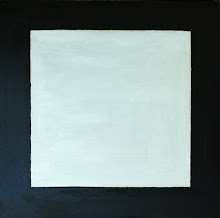 For the majority of Russians knowledge about modern Indian culture in whole and Indian literature, in particular, is limited to the already “ancient” Rabindranath Tagore, spiritual gurus of different caliber, Ravi Shankar and Indian cinema with its music. Although one can witness a new tide of interest in India among Russian creative youth, there is no real contact with modern Indian culture and its representatives. “V put Ot Rechnoi Dolini (River Valley to Silicon Valley)”, the book by Abhay Kumar, the writer, poet and diplomat, could be interesting for those “pilgrims to Oriental countries” who are not really satisfied with their knowledge about today’s life of this great country.
For the majority of Russians knowledge about modern Indian culture in whole and Indian literature, in particular, is limited to the already “ancient” Rabindranath Tagore, spiritual gurus of different caliber, Ravi Shankar and Indian cinema with its music. Although one can witness a new tide of interest in India among Russian creative youth, there is no real contact with modern Indian culture and its representatives. “V put Ot Rechnoi Dolini (River Valley to Silicon Valley)”, the book by Abhay Kumar, the writer, poet and diplomat, could be interesting for those “pilgrims to Oriental countries” who are not really satisfied with their knowledge about today’s life of this great country.Russian reader meets here an unknown world and exotic words, but the book turns out to be understandable and easy-to-read, since a reader comes across a genre familiar to us from Russian literature which could be defined as ‘childhood – adolescence – youth, genre. This particular genre elaborated in our literature by such luminaries as Tolstoy, Turgenev, Dostoevsky, Aksakov, Gorky and others, is related to Indian understanding of human’s journey in the world as spiritual growth, the one which brings together Hesychasm* with yoga and Vedic tradition. From the first sight one could define destiny of the main character of this autobiographic book with American formulae of a “self-made man”. That is, having applied enormous efforts in his studies, a boy form poor peasant’s family reaches top success in his life and career .However, this American term would be absolutely incorrect. Starting from his grandfather the wrestler (yogi, ascetic?), the whole family, and generation by generation is trying to educate the children and develop their spirituality. The family makes it the essence of its existence.
Author avoids mentioning any caste themes, but in Indian tradition it could be called as a “Brahmin’s journey”. Through the whole book one can feel a mighty force of family traditions behind the author and his elder brother (it is for this reason the book has the subtitle: Story of three generations of Indian family”).
Abhay Kumar just slightly touches upon his yoga classes and his visits to temples, but in the very “body” of the book one could feel author’s constant analysis and control over his psycho/physical conditions. In the beginning the book makes slightly sentimental and poetic statement, but later you find yourself involved into a book of almost adventurous genre in traditions of the “Golden Donkey”, “Simplicissimus” and “Golden Calf”. Passing through harsh methods of upbringing (only one fact that small children used to be woken up at 4 a.m. for a morning prayer is worth mentioning!), highly confusing bureaucratic educational system with endless tests and exams – all look like adventures of heroes in a suspense novel.(Wheel of Fortune, again, a symbol familiar to Indians).
Publishing this book in Russian is a breakthrough in our knowledge about modern Indian literature, its everyday life and world-view of Indian youth.
* In Eastern Christianity, type of monastic life in which practitioners seek divine quietness by the contemplation of God in uninterrupted prayer; Quietism.
Review by Andrey Khlobystin, Art expert and Artist, St. Petersburg, Russia

No comments:
Post a Comment